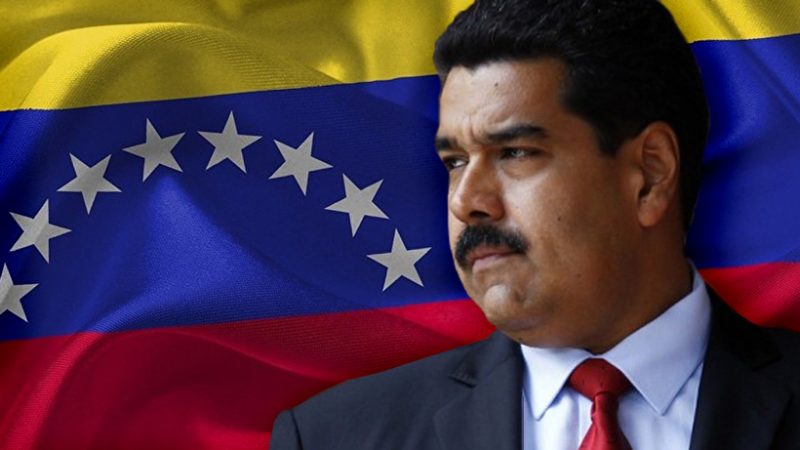The winds of change are howling over Venezuela as the government headed by Nicolas Maduro of the United Socialist Party of Venezuela has announced multiple changes in key areas of economic policy. The country has been in a state of recession since 2014, a year after President Maduro was elected due to the early death of President Hugo Chavez Frias. The economic woes have however only been exacerbated by the imposition of economic sanctions by the United States and the European Union. The role of the sanctions cannot be overstated, as the sanctions have made the import of vital medicines and food more difficult and in some cases orders of these essential goods have been canceled. The recent announcement of an overhauling of certain areas of the economy comes as a way to counter the sanctions, reinvigorate the economy and fight against what the Maduro administration calls an “economic war” being fought against the socialist government by local oligarchies, international interventionists and other political opponents of the Bolivarian Revolution which has headed the state since the late 90’s. One of the most interesting aspects of the reforms is the launch of a new currency.
The Sovereign Bolivar and the Petro: a front against inflation
The earliest of the economic reforms announced was the ending of the currency currently used in Venezuela; the Bolivar Fuerte. One of the most immediate problems that plagued the BF since its imposition was the organized crime gangs who would smuggle hundreds of millions of BF notes to Colombia and other countries. The bills themselves would then be bleached and used for the making of counterfeit US dollars. There are countless news articles documenting the seizure of millions of BF bills from all over Latin America. Because so much of the currency would be smuggled out of the country, a shortage of the bills became apparent leading to endless lines at ATM’s, and the strengthening of currency controls. The new currency, the Sovereign Bolivar, signifies a new era in Venezuelas monetary cone. The most marked difference between the currencies is the elimination of 5 zeros. 500,000 BF’s now equals 5 Sovereign Bolivars. This was done to put an end to nonsensical manipulation of the currency that allowed prices to reach in the hundreds of millions for things as basic as cheese or soap. Along with the striking of the zeros, another huge reform is to accompany it. The National Constituent Assembly, with the direction of the President, passed a law which loosens the control of the central bank on currency conversion and thus weakens currency controls that have been law for years.
The enactment of a single fluctuating exchange rate anchored to Venezuelas state backed cryptocurrency; The Petro, signals the end of a fixed exchange rate system that many argue is responsible for an explosion in speculation as well as the black market value of dollars. The amount of authorized exchange houses and brokers will also be increased to combat the black market. The role of the worlds first state backed cryptocurrency, the Petro, is also very apparent. The value of the Petro will be tied directly to the value of Venezuelan oil as well as the value of Venezuelas other vast deposits of natural resources such as natural gas, diamonds, and gold. Venezuelas state oil company PDVSA will be mandated to use the Petro as an accounting reference unit, ending the dominance of the dollar in domestic and international oil transactions. Both prices and wages will be directly tied to the value of the Petro to combat price and good speculation as well as inflation. This claim by the government is further given value with the recent move on the part of PDVSA to transfer a several billion-barrel rich oil field to the authority of the Venezuelan Central Bank. The value of the Petro in the new Venezuelan currency is 3,600, with the new Venezuelan minimum wage representing half a Petro- 1,800 Sovereign Bolivars with a bonus of 600 Sovereign Bolivars being given to the most vulnerable sectors of society (those who receive assistance from the “Homeland Card”).
Taxes and Oil: What Will Change?
The price paid at the pump by every citizen of Venezuela is about 6 Bolivar Fuertes per Liter, or 6 cents. This represents the lowest consumer price of petroleum in any domestic market. But beginning Monday, August 20th, the system of oil subsidization will change substantially. The price one pays at the pump will be determined by the international price of petroleum for better off sectors of the population. Meanwhile prices will remain low for those who qualify for a Homeland Card. This reorganization of the petroleum subsidy system is done not only to save the government money, but also to combat smuggling. Since anyone has access to these remarkably low prices a problem of mafias smuggling the oil to other countries to be sold for higher prices has emerged. This smuggling is responsible for the loss of over 18 billion USD in the economy annually. The President also announced that a new system of tax collection as well as changes to the tax code will be presented to the Constituent Assembly for debate and consideration. The new tax code will increase the Value Added Tax to 16% from 12% with exemptions for essential goods, increase taxes on luxury items, as well as mandate tax collection from every 2 weeks, to every week to allow for a steadier flow of income to the state.
Hopes are high in Venezuela that with this new plan of economic organization, a new era will be introduced, one marked by a new level of independence from the United States Dollar. The week of August 20th with represent a definitive change in policy by the state of Venezuela, which has already undergone a large amount of change in recent months. The introduction of new ministries, the countries first female Vice President, as well as a much younger and more female cabinet was the first sign that some things were going to change in Venezuela. Now, Venezuela is once again on the offensive, but time will tell just how successful these measures will be. “It has been a week of popular support and tireless work to start the monetary and economic reconversion of the country. We are going to dismantle the perverse war of neoliberal capitalism to install a virtuous, balanced, sustainable, healthy and productive economic system,” Wrote President Maduro on twitter and his country is hoping he is correct.









Leave a Reply